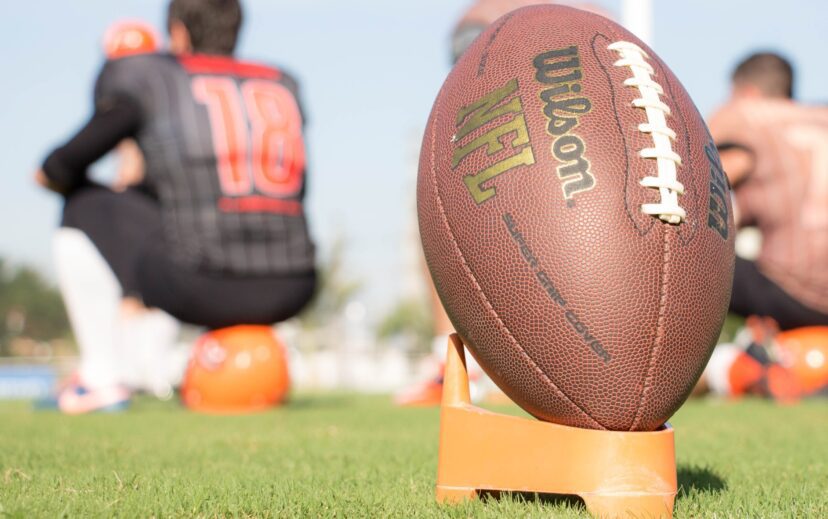On May 4th, California and New York attorneys general Rob Bonta (CA) and Letitia James (NY) announced a joint investigation into the NFL which will focus on workplace discrimination and hostile work environment. So far, AGs Bonta and James have issued the NFL and its executives a subpoena seeking information related to possible federal and state pay equity and anti-discrimination laws. Brian McCarthy, chief spokesman for the NFL, has said that the league will cooperate with the investigation.
CALIFORNIA AND NEW YORK HAVE NOW OPENED INVESTIGATIONS, WHAT DO THEY HOPE TO UNCOVER AND WHY NOW?
This investigation is being conducted jointly among both states because the NFL has its headquarters in New York and secondary offices in California, comprising more than 1,000 employees across both offices. The joint investigation, focused on workplace discrimination and hostile work environment, will specifically look into reports about racism, unwanted touching, being passed over for promotions, sexual harassment, bullying and other forms of discrimination at the NFL.
Why now? The NFL has come under increasing scrutiny in the past few years for allegations of both gender- as well as race-based discrimination, in addition to claims of sexual harassment, within the league. Recently, many former NFL employees have come forward and prompted official responses from Congress and the attorneys general of at least six states:
- In February 2022, Brian Flores, the terminated coach of the Miami Dolphins, filed a class action civil complaint against the NFL claiming that the league and its teams — specifically the New York Giants, the Dolphins and the Denver Broncos — remain “rife with racism, particularly when it comes to the hiring and retention Black head coaches, coordinators and general managers.” Ex-NFL coaches Steve Wilks and Ray Horton have also joined the Flores suit.
- Also in February 2022, The New York Times published an exposé where over 30 female employees of the NFL – particularly women of color – described experiencing unwanted touching from male bosses, attending parties where prostitutes were hired, being passed over for promotions based on their gender, and being pushed out for complaining about discrimination.
- In April 2022, attorneys general for six states (NY, IL, MA, ME, OR, WA) sent a letter to NFL Commissioner Roger Goodell demanding that the NFL take swift action to improve workplace conditions and protect its female employees, specifically those of color and those who are survivors of domestic violence.
- In December 2022, the congressional Committee on Oversight and Reform concluded a yearlong inquiry into allegations of workplace misconduct by Washington Commanders owner Dan Snyder and team executives, finding “sexual harassment, bullying, and other toxic conduct” pervaded the NFL for decades.
- Most recently, in April 2023, Jennifer Love, a former female manager of the NFL, filed an employment discrimination lawsuit in Los Angeles Superior Court, alleging age, sex, and gender discrimination and a hostile work environment.
DOES THE NFL HAVE A HOSTILE WORK ENVIRONMENT? WHAT DOES THAT MEAN?
Under Title VII of the Civil Rights Act (Title VII), a “hostile work environment” exists when the workplace is permeated with intimidation, ridicule and insult that is sufficiently severe or pervasive to alter the conditions of the victim’s employment and create an abusive working environment. To succeed on this claim, a plaintiff must demonstrate not only that he or she found the environment to be offensive, but that a reasonable person would have found the environment to be hostile or abusive.
The 2022 congressional findings indicate that the NFL does have a hostile work environment for its female employees because of sexual harassment within the league. Further, the 2022 letter from the six attorneys general referenced the NFL’s discriminatory treatment of women of color and survivors of domestic violence, in particular. That, along with Brian Flores’s allegations of racism, among other pending lawsuits, tends to show that the NFL has allowed a hostile work environment with sexual harassment and gender and racial discrimination.
WHAT OTHER LAWS DID THE NFL POTENTIALLY VIOLATE?
Based on these allegations, the NFL may have violated federal law, as well as state and local laws in both California and New York.
- Federal law. Title VII prohibits employment discrimination based on age, disability, race, national origin, religion, gender and sexual orientation. Title VII also makes retaliation against an employee who reports discrimination illegal. Further, the Equal Pay Act of 1963 (EPA), amending the Fair Labor Standards Act, protects against wage discrimination based on sex. The EPA requires employers to pay men and women equally for doing the same work.
- California law. The California Fair Employment and Housing Act § 12940 prohibits employers from discriminating against employees on the basis of race, sex or gender, and makes retaliation for reporting discrimination illegal. California has enacted its own pay-equity law, the California Equal Pay Act (Labor Code § 1197.5), which is very similar to the federal EPA.
- New York law. The New York State Human Rights Law (Article 15 of New York Consolidated Laws, Executive Law § 291) prohibits race and sex discrimination in employment and illegalizes retaliation for reporting discrimination. NY Labor Law § 194 closely mirrors the federal EPA and requires equal pay rates for jobs that require the same skill level or involve substantially similar work.
HOW SERIOUS IS THIS FOR THE NFL AND ITS REPUTATION?
The investigation is potentially very serious for the league and its reputation. If evidence of systemic mistreatment of female employees, as well as racial and sexual orientation discrimination is uncovered, it could lead to significant legal and financial consequences for the NFL and its teams.
In addition to the legal and financial implications, the investigations could also have a significant impact on the NFL’s reputation. The league has faced criticism in the past for its handling of workplace issues, and these investigations could further erode public trust in the league’s commitment to creating a safe and inclusive work environment for all employees.
However, it is worth noting that the NFL and its teams have the opportunity to take proactive steps to address workplace issues and promote a more inclusive workplace culture. By implementing strong policies and training programs and demonstrating a commitment to holding themselves accountable for any instances of harassment or discrimination, the league and its teams can work to rebuild trust and mitigate the potential reputational damage caused by these investigations.
CONCLUSION
Hopefully, this investigation will raise awareness and encourage a more open and honest conversation about workplace culture and diversity in professional sports. Whether the investigation leads to legal action remains to be seen. The attorneys general could pursue civil litigation against the NFL and its officials. The investigation might also generate evidence and testimony that could be used against the league in litigation brought by private individuals, such as Brian Flores, among others.
If you have experienced workplace discrimination, contact our team of qualified employment attorneys for guidance.


